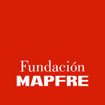Frequently Asked Questions (FAQs)
The most common questions

To respond to simple questions, we have provided you with a list of frequently asked questions and their answers. These responses do not replace the information established in the terms and conditions of the call, and in any case you can submit your queries using the form.
European Social Fund Plus
What is the ESF+?
The European Social Fund Plus (ESF+) is the European Union’s (EU) main instrument for investing in people. With a total budget for 2021-2027 of almost 99.3 billion euros for the European Union as a whole, of which Spain has an allocation of 16.3 billion euros, the ESF+ will continue to make an important contribution to the EU’s labor, social, education and training policies, including structural reforms in these areas.
The Fund is also one of the cornerstones of the EU’s plan for socio-economic recovery in the wake of the coronavirus pandemic. The pandemic has reversed increases in labor market participation, challenged education and health systems and increased inequalities. The ESF+ will be one of the EU’s key instruments for helping Member States to address these challenges.
Why does the ESF+ exist?
The European Social Fund (ESF) is one of the European Union’s Structural and Investment Funds, created in the Treaty of Rome in 1957 to promote employment and human resource development in all member countries.
In 2021 it was renamed the European Social Fund Plus, as the ESF+ combined four separate funding instruments in the 2014-20 programming period: the European Social Fund (ESF), the Fund for European Aid for the Most Deprived (FEAD), the Youth Employment Initiative, and the European Union Program for Employment and Social Innovation (EaSI).
How is the ESF+ managed?
Member States primarily manage the support under ESF+ and the Commission plays a supervisory role; the funding is therefore implemented through the principle of shared management.
Shared management means that responsibilities must be assumed at the appropriate levels: the Fund’s resources are part of the Community Budget and are administered by the Member States. The commitment assumed by each country implies strict compliance with the guidelines of the European Social Fund, for which an administrative organization has been developed to manage these resources in accordance with its own regulations. The European Social Fund’s investment in each country takes the form of National or Regional Programs. These define the areas of action, objectives and results to be achieved through the European Social Fund Plus program.
Regional Programs: of a regional nature or according to Autonomous Community, dedicated to the purposes stipulated by the Autonomous Communities and co-financed from their budgets or other means of public or private financing. For the period 2021-2027, 19 regional programs have been approved. These programs account for 48% of the total ESF+ allocation for Spain, which amounts to 16,300 million euros.
National Programs: these have a statewide, horizontal and thematic nature, with investment in all the Autonomous Communities and Autonomous Cities. They are co-financed by the General State Administration and by other public or private funding sources. For the period 2021-2027, 4 national programs have been approved. The national programs have been allocated 52% of the total ESF+ funding for Spain.
Of particular note is the Social Inclusion, Child Guarantee and Anti-Poverty Program, which has been allocated a total of 2.06 billion euros.
What is an intermediary body?
Intermediary bodies are public or private entities, at the national or autonomous community level, to which the Managing Authority delegates some of its management, monitoring and control functions. The Managing Authority is the national unit responsible for managing the funds under the Ministry of Labor and Social Economy.
Call for + Rural grants
Where are the terms and conditions available?
The terms and conditions of the call are available in the ESF+ section of Fundación MAPFRE’s website or by clicking on the MAPFRE link https://fseplus.fundacionmapfre.org.
Is there a telephone number and/or email address for queries?
On the Fundación MAPFRE website, in the ESF + section, there is a query form available to applicants for the following reasons: doubts related to the management of the call; queries about the functioning of the tool provided for the processing of applications, and incidents related to its functioning.
Can they be processed in person?
The electronic processing of the grants is compulsory at all stages of the procedure and must be carried out using the computer app made available to applicants, in line with the instructions and models established for this purpose and available on the Fundación MAPFRE website.
Who can apply for a grant?
This call is mainly open to third sector organizations as well as other entities, among which are included:
- The Social Economy organizations and/or companies regulated in Article 5 of Law 5/2011 on Social Economy.
- The alliances, federations, associations and unions of Social Economy entities covered by Article 7 of Law 5/2011 on Social Economy that have legal status.
In what language must the application for funding be submitted?
The language for registering and processing the grant application is Spanish.
What is the deadline for applying for the grants?
How much are the grants?
How do you apply for a grant?
To submit a grant application, organizations must use the app enabled to electronically process applications, which will be available in the ESF+ section of Fundación MAPFRE’s website https://fseplus.fundacionmapfre.org.
Upon accessing the app and prior to the electronic registration of an application, the legal representatives and contact persons must be identified.
A “User’s Manual/Guide for access and completion” will be made available to users, to facilitate the registration and traceability of the process, as well as to conserve the documentation provided during the process.
Applications are registered by filling out the standardized electronic forms found on the app; these should contain information on the project, its budget and the projected goals.
How do you get the necessary user name and password?
By accessing the app enabled for electronically processing funding applications, which is available in the ESF+ section of the Fundación MAPRE website https://fseplus.fundacionmapfre.org.
If you submit erroneous documentation, can it be corrected?
How are grant applications evaluated?
Grant applications will be evaluated in line with the validation and selection process described in the terms and conditions of the call for proposals, and in accordance with the mandatory selection and evaluation criteria established in Annex IV of the call for proposals.
When does the selection process end?
When will the grant be paid?
An initial advance of 30% of the grant will be paid by Fundación MAPFRE once the DECA has been formalised. The payment of the aforementioned amount will be made within a maximum period of 10 working days from the date the DECG is received, 230623_V1 30 duly signed by the beneficiary entity, by means of a bank transfer to the account indicated by the beneficiary.
Once the beneficiary has submitted and Fundación MAPFRE has verified the supporting account for the expenditure actually incurred in relation to the first advance, Fundación MAPFRE will proceed to make a second advance of the same percentage and on the same premises of justification and verification of the expenditure of the previous advance. Twelve months after the beginning of the operation, the entities must have presented the justification for at least the first advance.
The final payment, corresponding to the remaining 40% of the total grant amount, will be made once the completion of the operation has been duly justified and, if applicable, any pending expense justifications have been presented.
Are these grants compatible with other funding?
Is a public body eligible for these grants?
What are the requirements for projects?
What is the implementation period for the projects?




